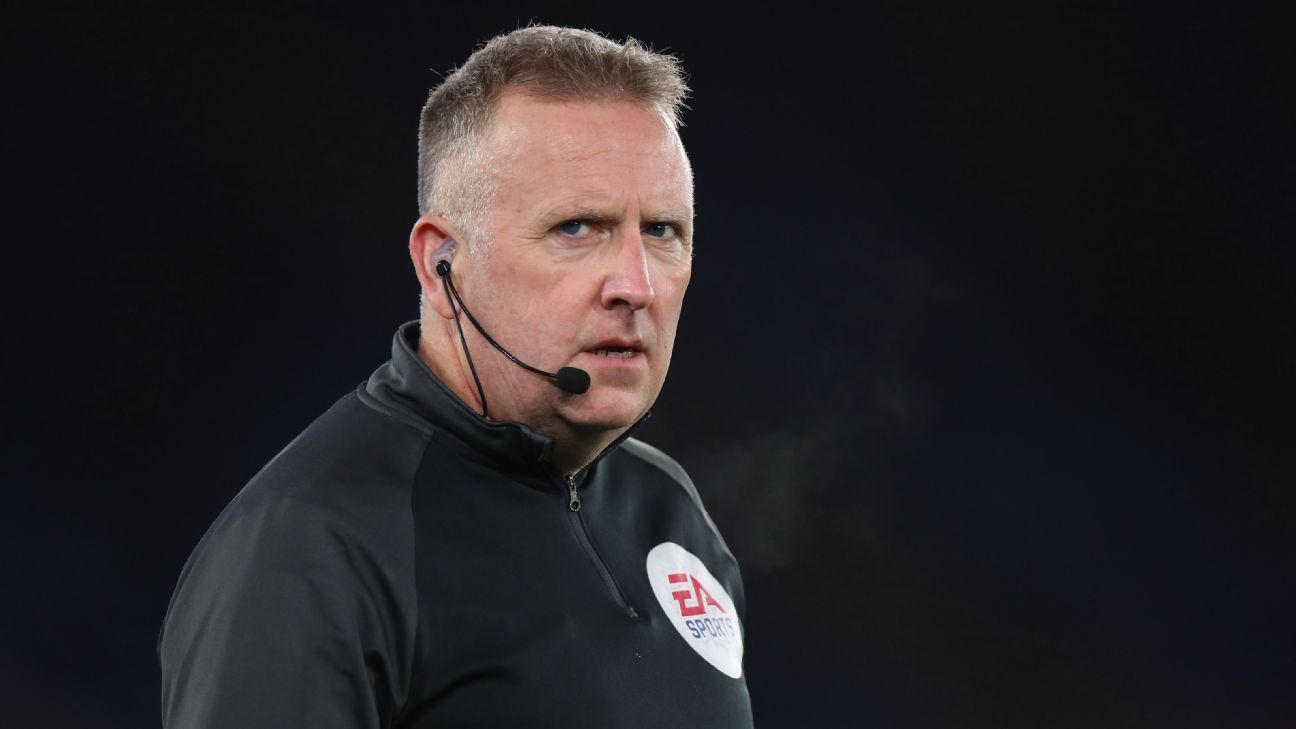Football Australia’s head of referees Jon Moss has defended the standard of A-League officiating, saying that clubs had been “more than happy” with how the competition had been overseen this season.
Refereeing of the Australian top flight was cast into the spotlight on Sunday when Macarthur FC captain Valère Germain quit the club to pursue an overseas opportunity, citing poor refereeing standards in the A-League Men chief amongst his reasons for leaving.
AAP reported that the former France youth international, who missed Macarthur’s 2-1 loss to the Western Sydney Wanderers over the weekend after receiving show-cause notice for an alleged lewd gesture towards an official, was concerned he was being targeted by opponents without adequate protection from referees.
“It’s disappointing that any player, a marquee player, especially one of the quality of Valère Germain, is frustrated by the refereeing in this country,” Macarthur chairman Gino Marra said at the time. “I’m sure many fans and clubs feel the same way.”
Beyond saying that they would welcome “any feedback from any stakeholder,” Moss avoided directly answering any question on Germain in a sit-down with media on Wednesday, instead pointing to statistics that showed referees were delivering on preseason commitments of a higher threshold for VAR interventions and allowing A-League to “breathe a little bit.”
“We have constant feedback and the feedback right across the board, from all the clubs, has been that they’ve been more than happy with the way that we’re refereeing,” Moss said.
“What we’re trying to stamp out of the game is players falling over, cheap free kicks — we’re not giving those, not every bit of contact is a foul.
“We will let the game breathe but still protect those skilful players. And the answer for referees is identifying that, whether it be a team tactic or individual, and making sure that we take appropriate action.
“Because we’ve got such good relationships with the clubs at the moment, we know and we address that as a season [progresses], but [protecting players] certainly hasn’t been the feedback that we’ve received to this point.”
Repeatedly seeking to emphasise that the relationship between the referees and A-League clubs was a strong one, Moss said that formal and informal mechanisms for questions and clarification had been frequently used throughout the season but, for the most part, hadn’t been used to voice indignation over decisions.
There has been a 21% reduction in yellow cards and a 47% drop in red cards in the A-League Men this season, with a similar fall in yellows in the A-League Women. Of the 972 VAR reviews conducted this season, meanwhile, he said 99.27% were correct based on parameters set at the start of the season.
“How often do we get clubs really angry about decisions? I’d say less than 5% [of communication with clubs] this season,” Moss said. “It’s been really rare that I’ve had clubs ringing me up about decisions or referees’ performance.”
A former Premier League official, Moss was appointed Football Australia’s new head of referees on the eve of the new season last October, tasked in part with overseeing a restructure of how the department operates.
Now fully staffed, he said that plans were afoot to reduce the number of officials listed for A-League Men and A-League Women fixtures for next season, with lower-performing referees moved to the newly unveiled Championship and NPL competitions. To avoid perceptions that the department was “marking our own homework,” efforts were also being undertaken to bring more independent figures into the review processes.
“I think we have a lot of really good officials in Australia,” said Moss. “I think we have officials with a lot of potential. They’ve done over 50 international games. We’ve got two candidates for the World Cup, which is unusual, and we’re coming to the stage of the Asian Champions League and our match officials are being represented either as VMOs or on the field.
“Can we get better? Undoubtedly. That’s why I’m here and that’s why we’ve got all these coaches on board; because we’re not satisfied with where we are now, and we want to get better.”


